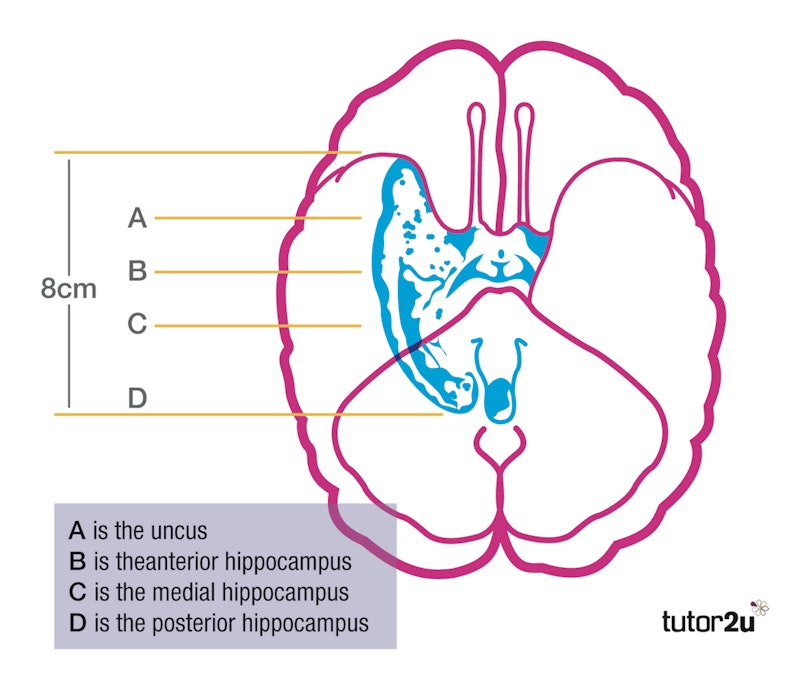Study Notes
Scoville and Milner (1957)
- Level:
- AS, A-Level, IB
- Board:
- AQA, Edexcel, OCR, IB, Eduqas, WJEC
Last updated 22 Mar 2021
Effect of hippocampal damage on memory.
Background information: Scoville performed experimental surgery on H.M.’s brain to stop the severe epileptic seizures he had been suffering since a fall off his bicycle many years previously. Specifically, he removed parts of HM's temporal lobes (part of his hippocampus along with it). The seizures reduced drastically but H.M. suffered from amnesia for the rest of his life. Milner, who was a PhD student of Scoville’s, followed up the surgery with cognitive testing for fifty years after the original operation. Hers is a cognitive longitudinal case study of H.M.’s anterograde (after the surgery) and partial retrograde (before the surgery) amnesia. The biological part of the H.M. study is the correlation between the brain damage and the amnesia, which was assumed in the 1950s, and not verified until later brain scans in the 1990s (see Corkin, 1997)

Aim: In 1953 Scoville performed surgery on the then 27-year-old H.M. to cure him of his epileptic seizures. [Note: this is a surgical procedure – it only became a study later when the memory damage was noted].
Method: The surgery involved what was called apartial medial temporal lobe resection. Scoville removed 8 cm of brain tissue from the anterior two thirds of the hippocampus, and believed he “probably destroyed …. the uncus and amygdala” as well (Scoville and Milner, 1957). Once the extent of the memory loss was realised, Scoville and Milner wrote about this, along with the results from this type of surgery on nine other patients, in a prominent neurosurgical journal, and Milner started her cognitive studying of H.M.
Results: H.M. lost the ability to form new memories. This is called anterograde amnesia. He could do a task, and even comment that it seemed easier than he expected, without realising that he had done it hundreds of times before. His anterograde procedural memory was totally affected. He also lost his memory for events that had happened after his surgery: he could not remember moving house, nor that he had eaten a meal thirty minutes previously. He had also suffered some retrograde amnesia of events preceding the surgery, such as the death of his uncle three years before. However, his early childhood memories remained intact. His intelligence also remained as before, at slightly above average.
Conclusion: The surgery to remove part of the hippocampus, the uncus and the amygdala resulted in total anterograde amnesia and partial retrograde amnesia.
Evaluation:
This is the assumption, based on the results with other patients as well as H.M. In the absence at that time of brain-scanning equipment, other possibilities were also present. The high doses of anti-epileptic drug he was taking before, and the lower doses after the surgery, may have resulted in some memory loss. Also, so far as we can see, no memory tests were conducted on H.M. before the surgery, and the initial memory loss was largely reported by his mother, with whom he lived.
For More Study Notes…
To keep up-to-date with the tutor2u Psychology team, follow us on Twitter @tutor2uPsych, Facebook AQA / OCR / Edexcel / Student or subscribe to the Psychology Daily Digest and get new content delivered to your inbox!
You might also like
Daily Email Updates
Subscribe to our daily digest and get the day’s content delivered fresh to your inbox every morning at 7am.
Signup for emails